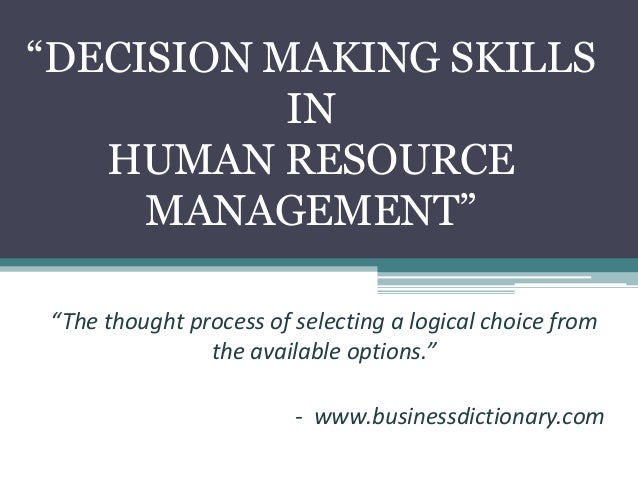Within this rapidly changing world, our ability to make wise decisions is more crucial than ever. Whether in one's personal lives or in a work setting, every choices we make have a deep impact on our outcomes. Nonetheless, the process of decision-making can frequently feel daunting, particularly when emotions come into play. Grasping the complex relationship between human emotions and the choices we make can reveal new levels of insight and efficacy in our decision-making skills .
As we delve deep into the psychology behind decision-making, we will explore various techniques that can enhance our ability to make informed choices. From mastering the skill of smart decision-making to recognizing how emotional intelligence factors into the processes, this article will provide insights into tackling common challenges such as decision fatigue and paralysis by analysis. By understanding the role of intuition and employing proven frameworks, you can enhance not only your own decision-making but also influence those around you. Join us as we explore the complexities of emotions and how they impact our decisions in both routine scenarios and high-stakes scenarios.
Techniques for Better Decision-Making
To enhance decision making skills, one useful strategy is the use of decision making models. These structured approaches help individuals deconstruct challenging choices into reasonable components. By recognizing criteria and balancing options against these parameters, decision-makers can clarify their thinking and stay clear of being overwhelmed by the subtleties of each choice. This structured method not only fosters clarity but also increases confidence in the ultimate decision.
Another crucial technique is to leverage the power of pause. In a high-speed world, the skill to take a step back and take a little time to think can lead to more thoughtful choices. Slowing down allows for a thorough consideration of options, likely outcomes, and affective responses. This deliberate approach to decision-making can significantly improve the quality of judgments, especially in stressful situations.
Finally, building emotional intelligence is essential for better decision-making. Understanding one's own emotions, as well as the feelings of others, can provide valuable insights into how emotions influence choices. By acknowledging emotional cues and biases, individuals can differentiate rational thinking from emotional responses, leading to more balanced decisions. Building this skill set not only aids in personal decision making but also improves interactions in teams, facilitating more successful consensus-building.
A Science of Making Decisions
Comprehending the mental framework behind decision-making reveals the intricate interaction between emotions and logic. Emotions considerably influence our choices, frequently acting as the key drivers of our decisions. For Continue reading , anxiety can lead to withdrawal behaviors, while joy can encourage risk-taking. Understanding these emotional cues can help people navigate their decision-making processes more efficiently, allowing them to become more conscious of how feelings can cloud judgment and lead to hasty choices.
Additionally, mental biases play a critical role in shaping how we make decisions. Biases such as confirmation bias, where one leans towards information that coincides with existing beliefs, or the anchoring effect, where early information unfairly impacts our ultimate decision, emphasize the mental shortcuts our minds often take. By understanding these psychological factors, people can work to lessen their impact, leading to more knowledgeable and rational choices.
Awareness and emotional intelligence are essential components in improving making decisions skills. By practicing mindfulness, individuals can cultivate increased awareness of their feelings and thinking, which leads to more focused thinking. Being emotionally intelligent allows for greater recognition and control of both one's own feelings and those of others, which is particularly helpful in collaborative contexts. Developing these skills can lead to more efficient decision-making and improved overall judgment.
Approaches for Successful Decisions
Optimal decision-making begins with clearly defining the challenge at hand. Taking time to grasp the specific issue, its surroundings, and the desired outcome is crucial. This insight helps in establishing preferences and defining standards for assessing options. By dividing the process into manageable segments parts, individuals can concentrate on relevant factors, making it easier to navigate complex situations and prevent hasty conclusions.

Another crucial aspect is to adopt a equitable approach that blends both analytical thinking and intuition. While data and logical reasoning provide a reliable foundation, instincts and past encounters often guide us in ways we may not completely recognize. Leveraging both instinct and reasoning can lead to more comprehensive assessments and ultimately more favorable decisions. Additionally, using decision-making frameworks can aid in arranging thoughts and ensuring that all pertinent perspectives are considered.
Ultimately, introspection plays a significant role in enhancing decision-making capabilities over time. Reviewing both successful and failed decisions allows people to gain insights from their encounters. Practicing mindfulness can enhance self-awareness, helping to manage emotions that may cloud judgment. By fostering a habit of introspection, individuals can improve their decision-making processes and grow greater assurance, leading to consistently successful choices in various aspects of living.
